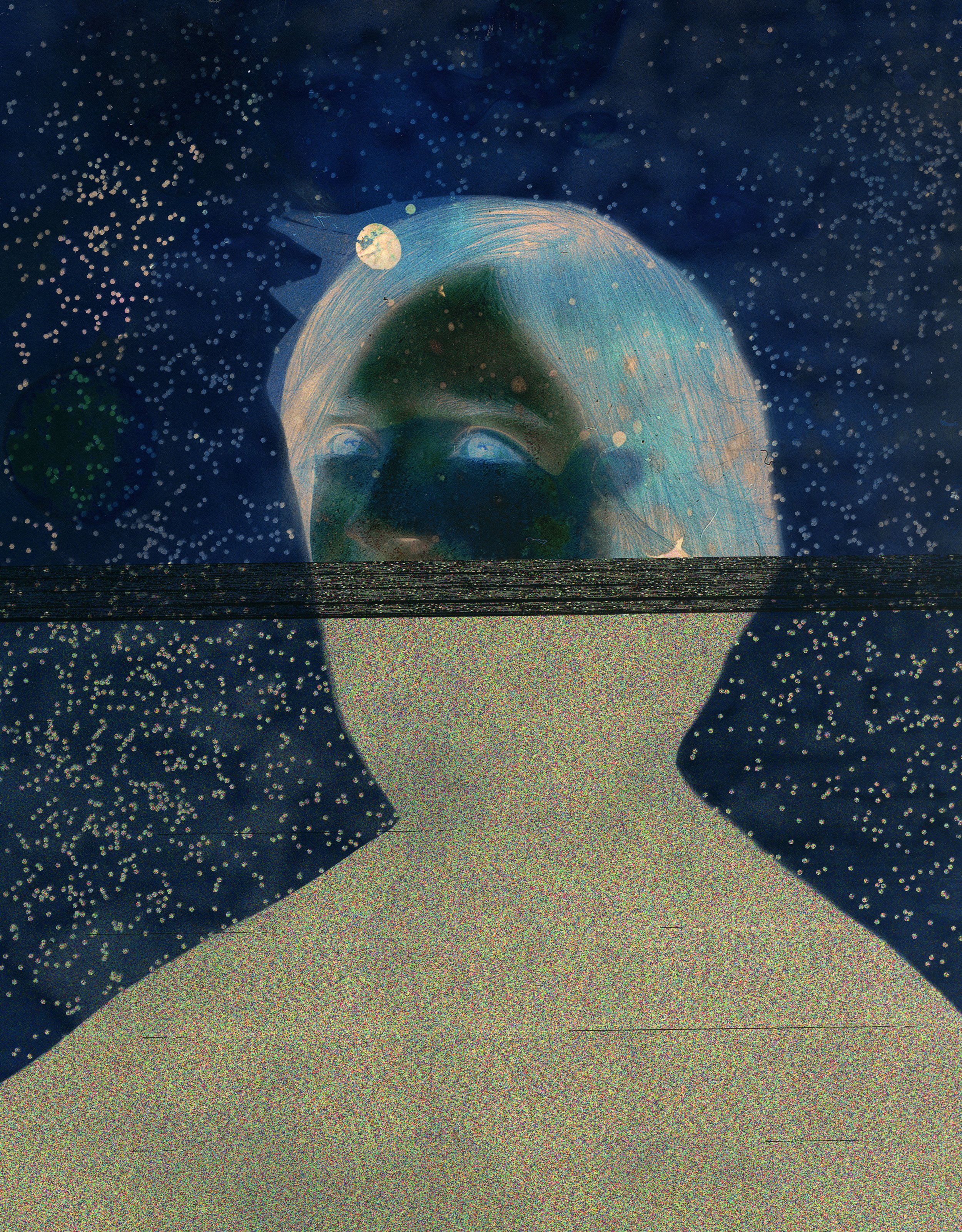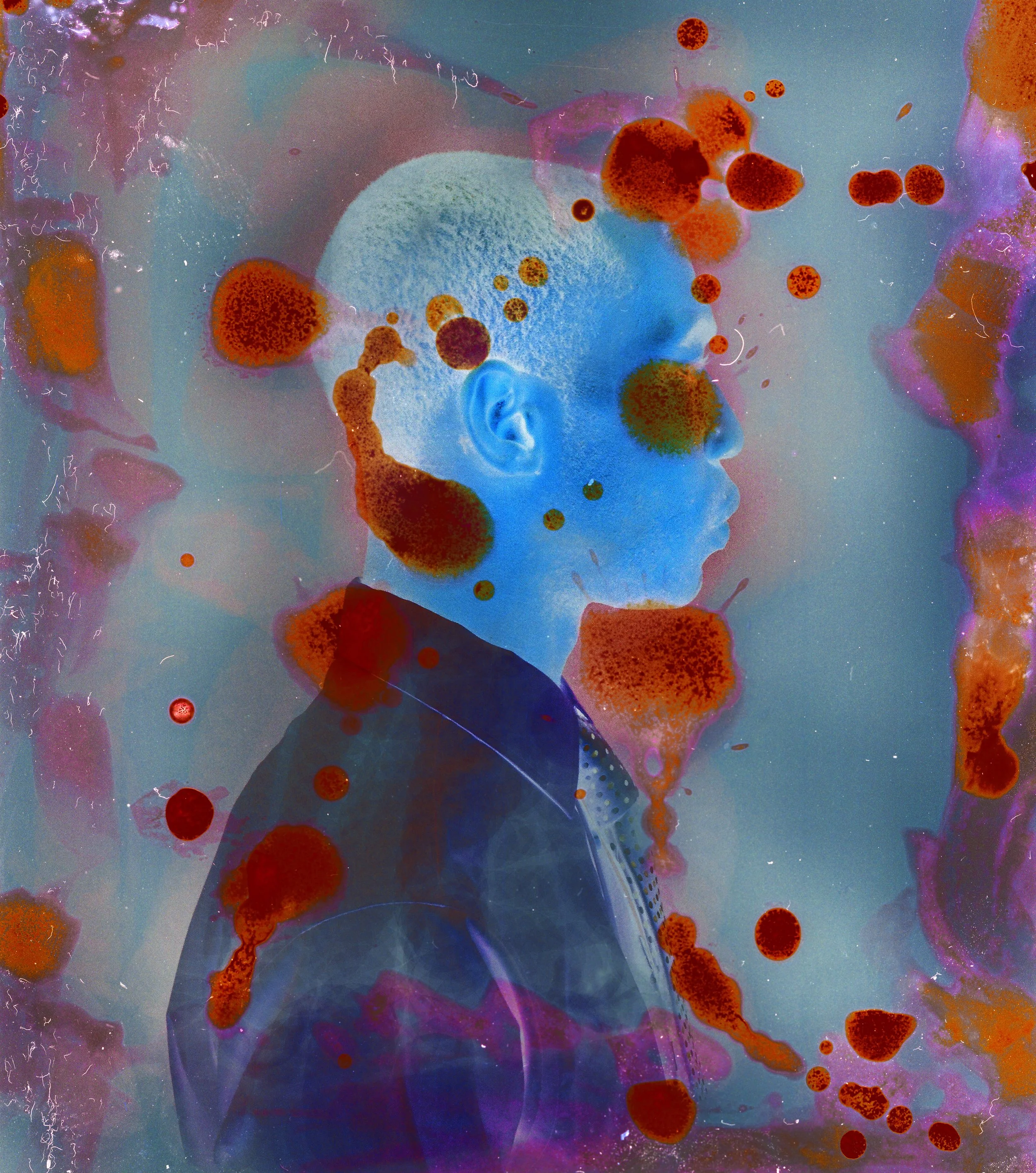Exhibition Review: Aline Smithson | Fugue State
Fugue State Revisited #37
Aline Smithson © Griffin Museum of Photography
Written by Nina Rivera
Edited by Robyn Hager
Photo Edited by Zona Lin
The Griffin Museum of Photography presents Aline Smithson’s Fugue States, described as an “on-going exploration of the future legacies of photography”– specifically on the passing of the physical print and the complex evolution of digital image files.
Fugue State Revisited #22
Aline Smithson © Griffin Museum of Photography
Smithson is best known for her conceptual portraitures that emphasize the performative prospects of photography. Inspired by photography’s transitional nature throughout the years of advancing technology, Smithson is constantly examining the temporality of the photographic image and the lengths that are taken to preserve them. Through her work as an analog photographer Smithson has experienced the slow deterioration of the film photography industry over the years of her career. The digital age of photography has stripped photography of its physicality, and moreover its potential to harbor histories in each frame.
Fugue State Revisited #12
Aline Smithson © Griffin Museum of Photography
Fugue States demonstrates a gnawing fear of loss for the physical photographic print. As Smithson explains, “The photographs created for this series sit in an in-between space of the future and the past, demonstrating the clash between images and materiality, where materiality, unfortunately, seems to be losing ground.” The initial inception of this series came about after Smithson realized her children, who collect their own photos every day via phone and social media, have never and possibly will never be responsible for creating their own tangible print, or be able to materially leave old photos to the next generations of their family.
Fugue State Revisited #24
Aline Smithson © Griffin Museum of Photography
The images displayed in this particular series were taken as standard and familial analogue portraits until Smithson chemically damaged the emulsion side of her negatives, permanently altering each delicate shot. Taking the negatives into the digital archive space Smithson then leaves each film roll in its inverted and original condition in order to showcase the potential to restore irreparable destruction of remembrance. This demonstration only further reflects the impact of tangible images on cultural histories for families across the globe.
Fugue State Revisited #34
Aline Smithson © Griffin Museum of Photography
In the midst of creating her photos, Smithson lost over 20 years of analogue scans after a hard drive was lost and corrupted. While upsetting at first, the corrupted images revealed themselves to be distinctive in their own pixelated disruption. Smithson soon reimagined each loss as another opportunity to expand on the work made for Fugue States, thus creating Fugue State Revisited.
Fugue State Revisited #10
Aline Smithson © Griffin Museum of Photography
This process included imposing cyanotypes over the corrupted scans as well as older portrait silhouettes to form a visual erasure of the harsh pixels. Looking at the damaged images alone, it’s clear to visualize the impending doom that digital archives and new file formats can have on the world of photography. However, by meshing both historical photographic methods and modern digital ones, each image has the ability to sustain a space in the vast expanse of time.
Cory from Fugue State
Aline Smithson © Griffin Museum of Photography
Smithson’s reinterpretation of intended and accidental flaws within photography has unveiled several unnerving questions about the future of visual art. It’s uncertain to know exactly how the overpowering nature of digital photography will affect the underdog that is analogue photographic practices, but Smithson brilliantly demonstrates the strong will of a long-standing creative effort. Each image in Fugue States and Fugue States Revisited exists on a wholly intergalactic scale, simultaneously spanning beyond human nature and tech and yet intertwining them completely together. While Smithson sends out a warning to us all about our diminishing memories and histories, her ability to find gorgeous merit in every ruined likeness also unfurls the slightest bit of hope for those driven to create photographs.
Fugue States is presented by The Griffin Museum of Photography and is on view from November 3rd through December 4th, 2022 at 67 Shore road, Winchester MA, 01890.














